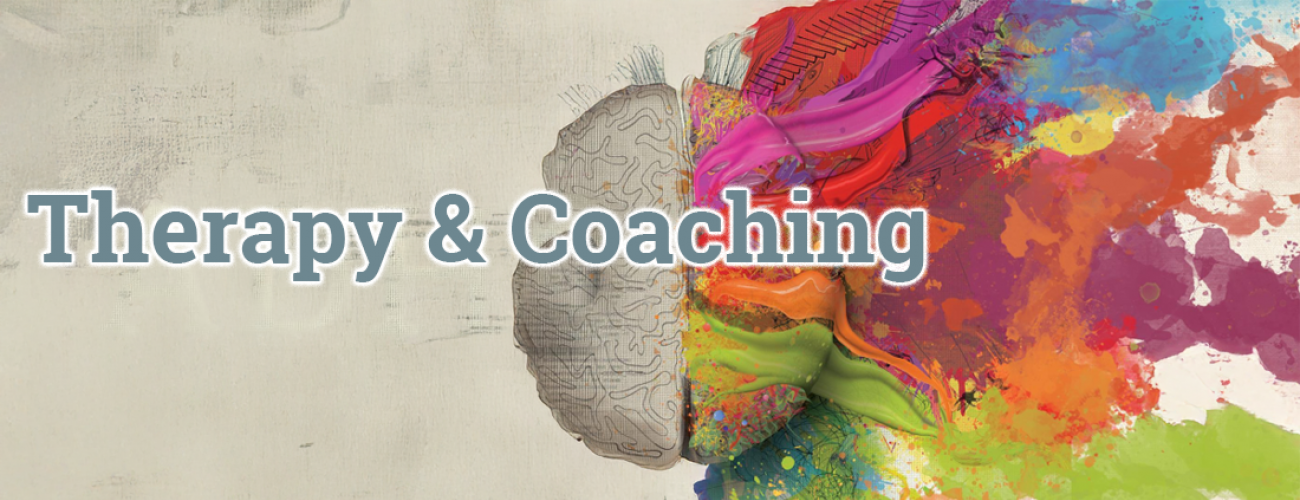The gold-standard treatment recommendation for ADHD is a combination of medication and psychoeducation interventions, such as ADHD coaching and therapy.
Neurodiversity Talk Therapy
Therapy can be a valuable support for clients with neurodiversity, offering tailored strategies and interventions to address unique strengths, challenges, and needs. Therapy involves a collaborative partnership which helps to develop emotional well-being, enhance self-confidence and agency and improve resilience and quality of life for individuals with neurodiversity with or without medication or coaching - you do not need a diagnosis for this. Therapists are likely to explore your history and belief systems in order to navigate life with neurodiversity while addressing any co-occurring difficulties such as anxiety and low mood, loss, grief, trauma, addiction or life adjustments.
A neurodiversity therapist, usually a licensed mental health professional such as a psychologist, psychotherapist or counsellor, offers therapeutic interventions aimed at addressing the emotional, psychological, and behavioural aspects of neurodiversity and life in general. Therapists may use a variety of evidence-based interventions and therapeutic modalities, such as cognitive-behavioral therapy (CBT), EMDR, dialectical behavior therapy (DBT), or mindfulness-based approaches, to help clients manage symptoms, improve self-esteem, cope with challenges, and enhance overall well-being.
Therapy may include a focus on:
-
Understanding, Acceptance & Identity: Therapy can provide a safe space for clients to explore and understand neurodiversity and how it impacts on sense of self, fostering self-awareness, acceptance, and empowerment. Therapy may support clients in exploring and embracing their unique identities, strengths, and interests, fostering a sense of self-worth and pride in their neurodiversity.
-
Support for Co-occurring Conditions: All individuals including those with neurodiversity may also experience co-occurring mental health conditions such as anxiety, depression, addictions or PTSD . Therapy addresses these challenges holistically, providing integrated support for improved overall well-being.
-
Skill development: Therapists may also work with clients to develop practical skills and coping strategies to navigate social interactions, manage sensory sensitivities, regulate emotions, and address executive functioning challenges. There may be a focus on identifying values and goals whilst removing psychological barriers to achieving particular goals and assisting in development of problem-solving and decision-making.
-
Relational, Communication and Social Skills: Therapy may focus on improving communication and social skills, helping clients build relationships, navigate social nuances, and develop a sense of belonging and positive identity within interpersonal situations.
-
Emotional Regulation: Clients with neurodiversity may struggle with emotional regulation or other mood difficulties. Therapy offers tools and techniques to identify, express, and regulate emotions effectively, promoting emotional well-being and resilience.
-
Family and Relationship Support: Therapy may involve family members or caregivers in the therapeutic process, fostering understanding, communication, and support within familial and interpersonal relationships.
Neurodiversity Coaching
Neurodiversity Coaching is available to anyone and does not require a diagnosis. Sessions are tailored to suit the needs of each client and focus on skill development. ADHD coaching provides specialised support for clients and possibly their families or schools, through a focus on practical strategies and goal achievement intended to manage symptoms, enhance productivity, and improve overall well-being.
An ADHD coach specializes in providing practical strategies, tools, and support to help individuals with ADHD manage their symptoms, improve executive functioning skills, and achieve specific goals in various areas of life, such as academics, work, and personal relationships. Coaches typically focus on the present and future, offering accountability, motivation, and guidance to empower clients. Coaching sessions primarily focus on practical strategies, goal setting, skill-building, and accountability to help clients overcome challenges related to ADHD and improve functioning in specific areas of life. Coaches do not diagnose or treat mental health disorders but may collaborate with other professionals, such as therapists or psychiatrists, as part of a multidisciplinary treatment team.
Coaching may include a focus on the following areas:
-
Understanding what ADHD is and how it may impact you: Coaches help clients understand their ADHD symptoms, challenges, and strengths, fostering self-awareness and acceptance of their neurodiversity.
-
Goal Setting and Time Management: ADHD coaching focuses on setting realistic goals and developing effective time management strategies to prioritize tasks, overcome procrastination, and improve productivity.
-
Organization and Planning: Coaches assist clients in creating personalized systems for organizing tasks, schedules, and belongings, reducing overwhelm and increasing efficiency in daily life.
-
Task Initiation and Follow-Through: Clients with ADHD often struggle with initiating tasks and following through to completion. Coaches provide accountability, motivation, and encouragement to help clients overcome inertia, reduce avoidance, address attention difficulties and forgetfulness and stay on track.
-
Emotional Regulation: ADHD coaching addresses emotional dysregulation by teaching clients mindfulness techniques, self-soothing strategies, and coping skills to manage impulsivity, frustration, and overwhelm.
-
Executive Functioning Skills: Coaches support clients in developing executive functioning skills such as planning, problem-solving, decision-making, and self-monitoring, enhancing their ability to navigate academic, professional, and personal challenges.
-
Self-Advocacy and Communication: Coaches empower clients to advocate for their needs and communicate effectively with others, whether in educational, workplace, or social settings.
-
Stress Management: ADHD coaching provides tools and techniques to help clients manage stress, anxiety, and sensory sensitivities, promoting emotional well-being and resilience.
-
Building Healthy Habits: Coaches assist clients in establishing and maintaining healthy lifestyle habits, including sleep hygiene, nutrition, exercise, and self-care practices, to support overall health and well-being.
-
Celebrating Successes and Progress: ADHD coaching celebrates clients' successes, no matter how small, and encourages a growth mindset focused on continuous learning, resilience, and self-improvement.

